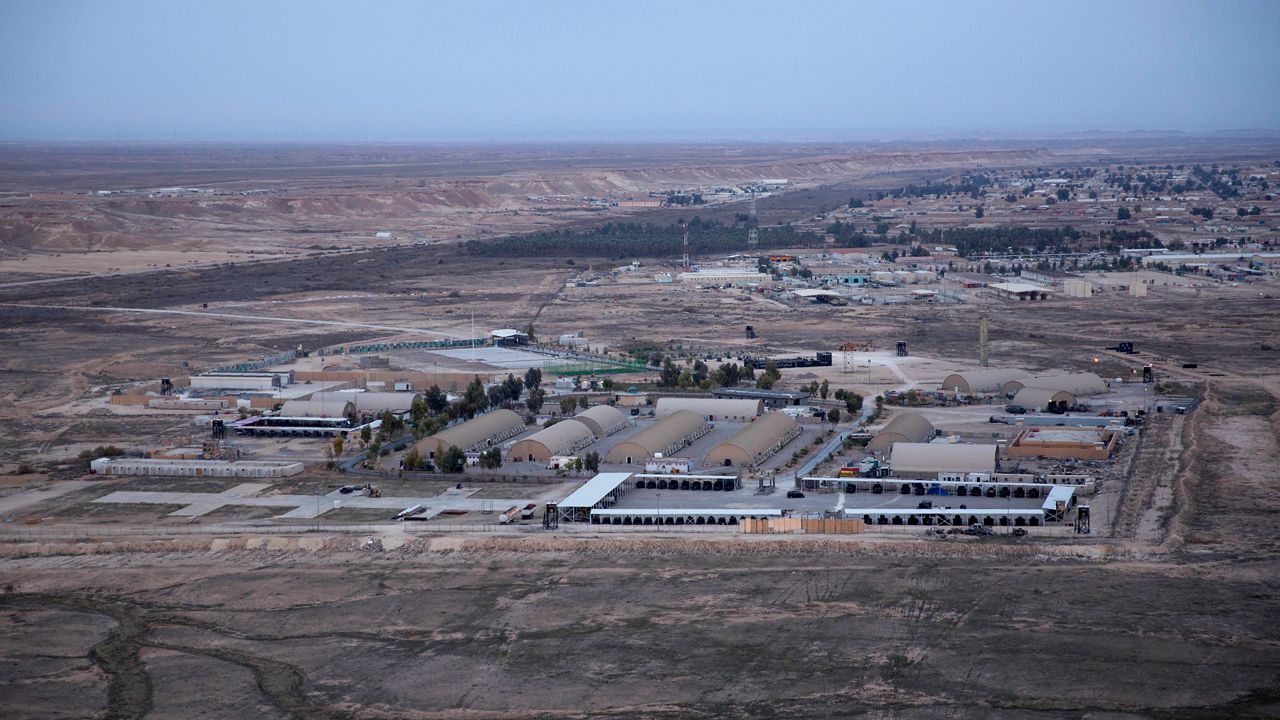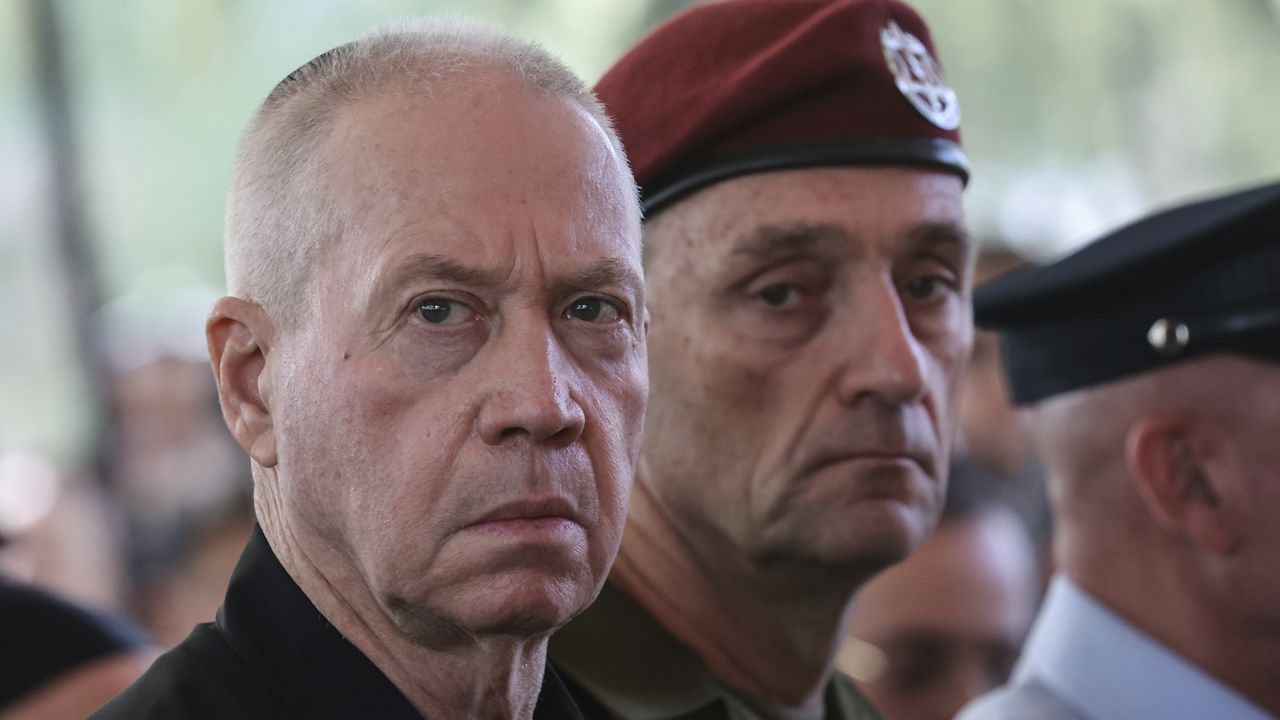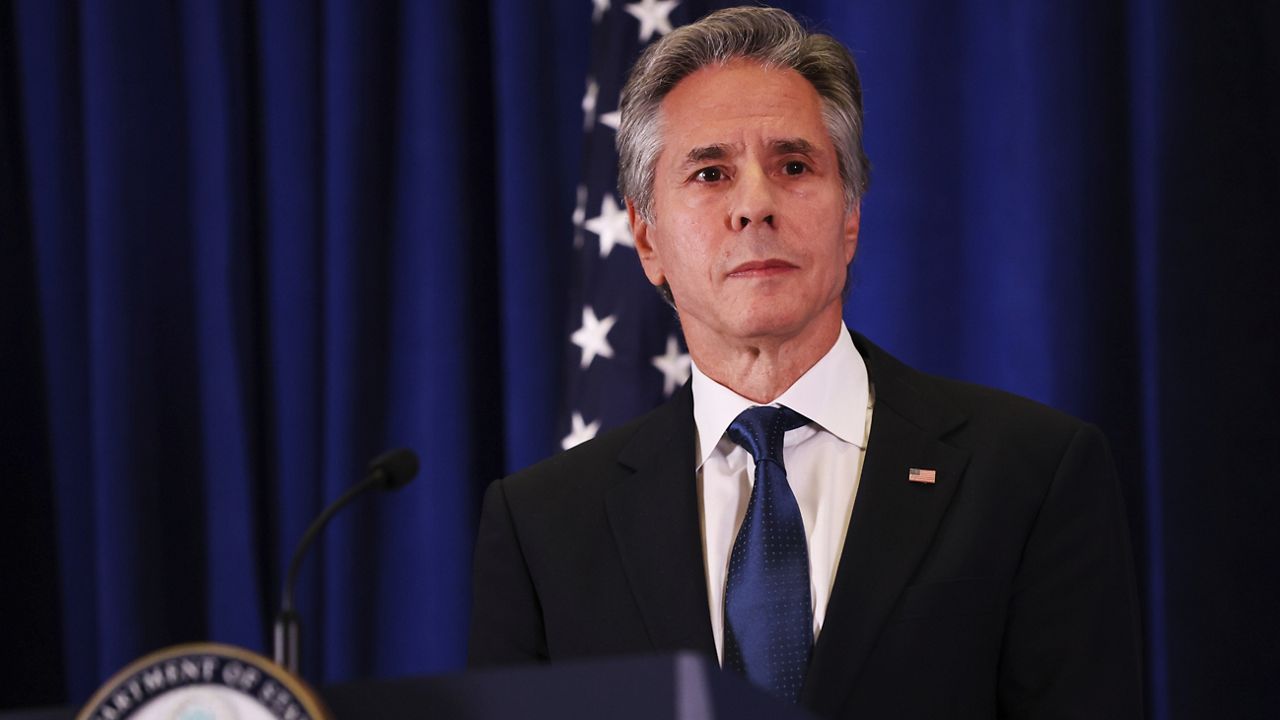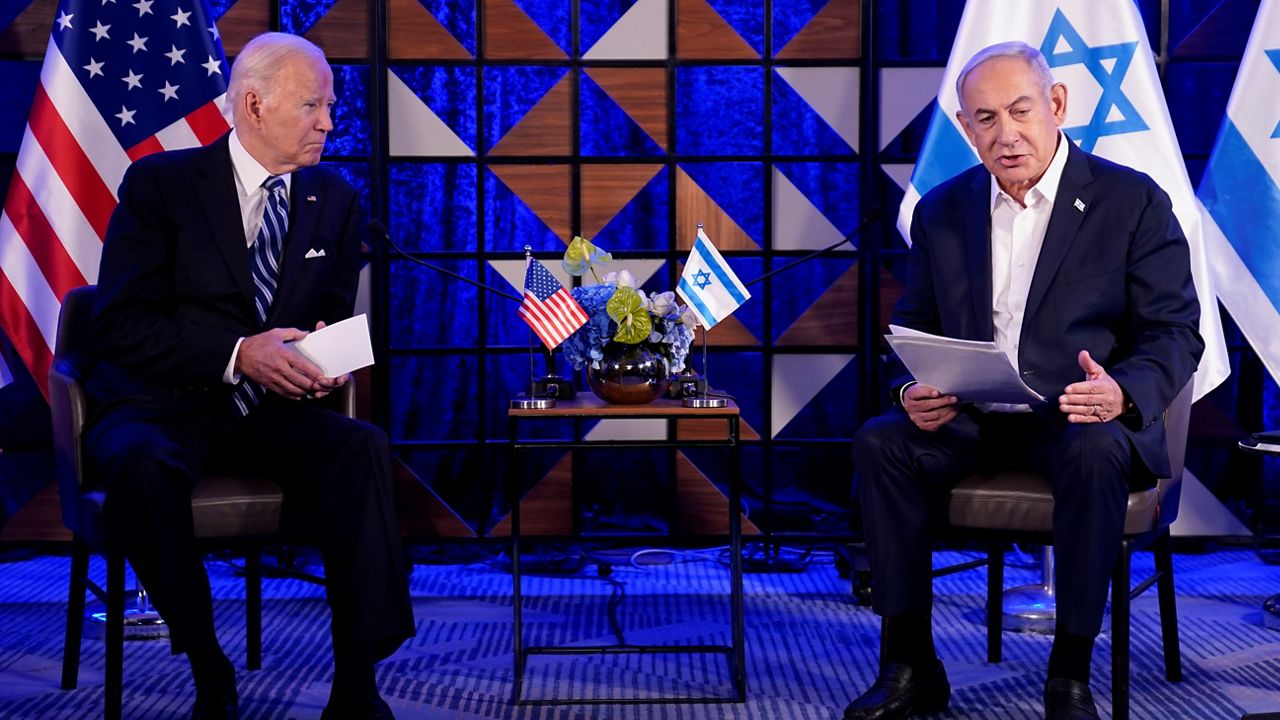Multiple U.S. personnel and at least one Iraqi service member were injured on Saturday night after a missile and rocket attack on an airbase a few hours west of Baghdad by unspecified “Iranian-backed militants,” the Pentagon said.
“At approximately 6:30 p.m. (Baghdad time) time Jan. 20, multiple ballistic missiles and rockets were launched by Iranian-backed militants in Western Iraq targeting al-Assad Airbase,” U.S. Central Command said in a statement. “A number of U.S. personnel are undergoing evaluation for traumatic brain injuries. At least one Iraqi service member was wounded.”
The U.S. military said the base’s defense system intercepted “most of the missiles.”
The attack is just the latest in a flurry of strikes across the region by the U.S., Israel, Iran, Pakistan, Turikye and other nations and combatants since the Israel-Hamas war began last October. The strike in Iraq came hours after Syrian and Iranian officials said an Israeli strike on the Syrian capital of Damascus killed five Iranian military advisers. And it came at the end of a week where Pakistan and Iran fired missiles into each other’s territory, Iranian strikes in northern Iraq killed civilians near the U.S. consulate. and U.S. fighter jets struck Houthi rebels in Yemen for the sixth time this year in retaliation for their attacks on international shipping routes.
The war in Gaza has left over 25,000 Palestinians dead, according to the health ministry there, inflaming existing conflict in the region and sparking anger at Israel and its close ally the U.S. Israeli officials say the fighting is likely to continue for several more months.
For months, the Houthi rebels in Yemen, who the Biden administration recently put back on its list of specially designated global terrorists, have attacked ships in the Red Sea that they say are either linked to Israel or heading to Israeli ports. They say their attacks aim to end the Israeli air-and-ground offensive in the Gaza Strip. But the links to the ships targeted in the rebel assaults have grown more tenuous as the attacks continue.
“Are they stopping the Houthis? No,” Biden said on Thursday after the airstrikes he had ordered. “Are they going to continue? Yes.”
Iraq recalled its ambassador from Tehran over Iran’s overnight strikes on Monday in Irbil, the seat of Iraq’s northern semi-autonomous Kurdish region. Iran’s Revolutionary Guard said in a statement Tuesday that it launched four missiles at what it claimed were Islamic State positions in Syria’s Idlib province and 11 missiles at the Kurdish region in northern Iraq, where it said it hit a center of Mossad, the Israeli intelligence agency. Iraqi officials denied the target in their country was a Mossad facility.
The Islamic State group claimed responsibility earlier this month for two suicide bombings targeting a commemoration for an Iranian general slain in a 2020 U.S. drone strike. The attack in Kerman killed at least 84 people and wounded 284 others at the ceremony honoring Revolutionary Guard Gen. Qassem Soleimani.
On Christmas Day, Biden ordered airstrikes on three locations in Iraq targeting “Iran-affiliated groups” to “to deter Iran and Iran-backed militia groups from conducting or supporting further attacks on United States personnel and facilities.” The Iraqi government decried those strikes as “a clear hostile act.”
Iraqi Prime Minister Mohammed al-Sudani told the Wall Street Journal on Tuesday that the time has come for the U.S.-led military coalition operating in his country to end its mission. The U.S. currently has around 2,500 troops stationed in Iraq as part of an international effort to combat the Islamic State.








